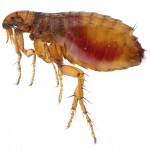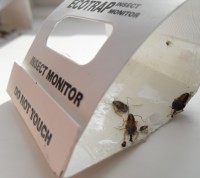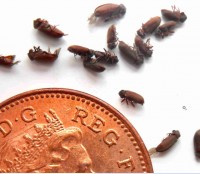Experts in Flea Removal. Guaranteed.

We are specialists in removing fleas from Norfolk homes
Norfolk & Norwich Pest Control provide an expert local flea removal service throughout all of Norfolk and have been controlling fleas for many years. Many homes across Norfolk have been subject to an infestation of fleas at one time or another. We control fleas to homes in the region and also work on behalf of many Norfolk Letting Agents – so we know our stuff when it comes to flea control. They trust us – and so can you!
Call us on Norwich 01603 905530 for immediate help.
Why have I got fleas? If you thought that fleas were a thing of the past then think again. Fleas have returned and now are virtually a problem all year round. Not so many years ago, flea removal enquiries came through to the Norfolk pest controllers phone between August to October, when the ground is warm from summer time and humidity in the atmosphere rises. Now, for the past five years we have calls for flea control all year, although much less in numbers than summer. Fleas (female) only live on their host (your cat or dog) for a short time, therefore your pet is known as an intermediate host.
So where did they come from? In summer time, fleas spend their time outside in bushes and long grasses and will hitch a lift on your cat or dog indoors. Most wild animals carry fleas, including birds and hedgehogs, which also forage in the same area as your pet outside. Once indoors, fleas become a problem and your home will need a ‘fumigation’.
Where do the fleas live in my house? It has to be understood that most fleas do not live on your pet – they live within the skirting boards of your home, at the base of the carpet pile and under laminate or wood flooring. This offers fleas the best protection from prey, such as spiders – or your vacuum cleaner! Some 80% of fleas in a given population live away from their host. However, most people don’t vacuum the edges of the carpets with the funnel attachment of the cleaner, and to be truthful, even if you were to, fleas excrete a glue-like substance on their eggs so removal is extremely difficult to achieve. However, vacuuming does help. If you have bare floor boards fleas may breed on the ceiling below and crawl through the gaps above. Fleas also live and breed under laminate flooring too. Fleas that you find on your pet are female fleas that need protein from blood to lay yet more eggs. Fleas are prolific egg layers and deposit hundreds over their lifetime per female.
I’ve treated my cat or house myself, but still have fleas. Most people that contact us for help have either already gone to the vets or tried an insecticide from the supermarket already, but it hasn’t worked. Why is this? There are several reasons including using the wrong insecticide (although the can of spray may have stated on the label ‘Flea Killer’), not using enough of it – we use an average of five litres of spray per household, or failure of control by just treating your pet and not the floor area. Fleas have become immune to some chemicals you can buy. In any flea population their can be a natural resistance present to the chemical you may use. If there is, you will kill those with no resistance and those that survive will have total immunity from the product. In the UK, this suggests over-use and being reliant on just one chemical for flea control. When considering flea eradication, it is important to seek advice from your vet for a treatment but of more importance, you may remember we said that 80% of fleas do not live on your pet but in your flooring, you need the house treated too – or they’ll never go away. We carry out this work effectively and safely.
Find answers here at Norfolk & Norwich Pest Control and we will tailor a treatment to your needs at a time to suit you. We’ll also run through what you need to do to prepare for the visit, such as clearing floors, vacuuming carpets, children and animal management for health and safety etc.
Why should I use you? We are professionals in our field. Last year we were 100% successful in eradicating fleas in just one visit. A survey* that was carried on behalf of professional pest controllers in 2012 said that nearly half – 45 percent – said they received calls from customers calling back to say they still had fleas after the work was carried out. A return call normally means you have to pay again and wait again for fleas to die. Some 63 percent reported that call backs had increased compared to the previous year. A large proportion – 37 percent – actually advised two visits needed to be carried out. Norfolk & Norwich Pest Control can remove the infestation in just one visit, cutting your price by half. The second visit was apparently priced in as part of their ‘customer care programme’. Our policy for fleas is that if they are not eradicated on the first visit, we will treat again – free of charge. You must also carry out basic advice too though, such as allowing us access to spray under your beds and you must never vacuum the carpet after the work has been carried out for at least two weeks – or you’ll vacuum much of it away. Houses that have floorboards may be excluded form our guarantee. (*Source: Pest – independent UK pest management magazine survey of pest control companies, November & December 2012 issue)
How much will it cost? Price is important so you need the most effective treatment for the best price. Call us for a quote- there’s never any obligation. We usually beat our competitors across Norwich and Norfolk – and if it doesn’t work, you can have your money back or we’ll retreat your home for free.
“It is said that for every flea that lives on your cat or dog there will be 99 more starting to develop in your carpet, skirting or floorboards. At some point in their lives your pet may suffer an infestation”
About Fleas: There are over 2,000 species of fleas. Fleas can live between 7 and fourteen days. Female fleas will divide their time between living on your pet to feed and returning to your flooring to lay more eggs – and this happens every day. The larvae bury themselves into carpets and may lay dormant for several weeks. The larvae travel up and down carpet fibres eating organic matter such as dried flea droppings and microscopic animal material When the adults sense warmth and vibration they will jump onto your pet (or you) and start the cycle over again.
How to check for fleas on your cat: The most obvious sign of fleas will be that your pet is continuously scratching. You should also be able to see them in the fur of your pet. Fleas are dark brown in colour and are approximately 1–2 mm long. You may also find tiny black specks of flea dirt on your pet just under their fur. If you gently rub a dampened white kitchen towel into the fur and find deep red blotches, probably dried blood, these will be flea droppings. The height of the summer is when fleas are most rife; however they can be nearly as bad at other times of the year if you have a warm central heated home.
Seek advice from your vet about fleas. However, don’t forget as 80% of fleas live in your carpets, skirting boards, laminate flooring or bear floorboards you do need to get your house fumigated to eradicate the fleas as well – or they’ll never go away.
Written by flea control specialist Richard Pummell at Norfolk & Norwich Pest Control.







